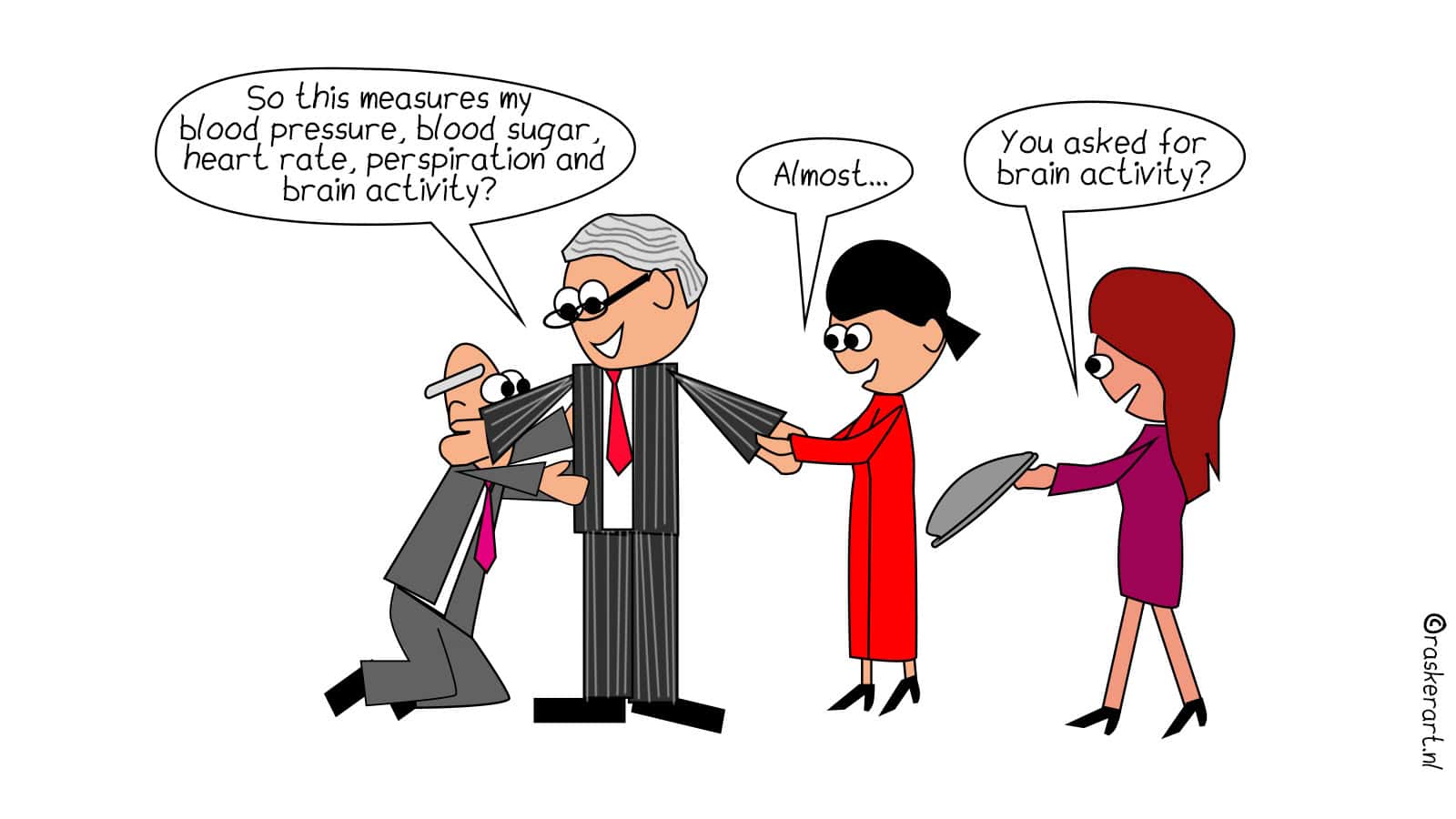
In our Sunday newsletter, we, as editors, reflect on the past seven days. We do this on the initiative of our cartoonist Albert Jan Rasker. He chooses a subject, draws a picture, and we take it from there.
At the turn of the century, more and more business processes were stalled because of the rigid way computer systems were implemented. Consultants were flown in; they were told what the work looked like; the consultant made a model that was plugged into a computer. Nine times out of ten that resulted in a model that did not match the practice
Twenty years ago, Wil van der Aalst, then a professor at TU/e, laid the foundation for process mining. Since then, intelligent data technology has saved millions of companies worldwide. The technology can describe ninety percent of the processes within an organization.
But, the technology itself needs to improve because it can only do its job once all the data is ready. Thus, Konekti was born: a data preparation tool for process mining. Co-founder Lotte Vugs compares companies’ process data to an unsolved Rubiks’s Cube. Each cube is a piece of data. Konekti’s tool solves the Rubik’s Cube so that it does not – as illustrated in Albert Jan’s cartoon – form a confusing heap of information. You can read exactly how that works in this article by Linda Bak.
Millions for fast proteins and champagne for our neighbours
There was a lot of positive start-up news this week. Tuesday morning, there were quite a few empty champagne glasses on the kitchen counter we share with our neighbours from Carbyon. Champagne was popped for a reason, as the start-up reached a significant milestone last week. They developed an ultra-fast process that captures CO₂ with an energy requirement of less than 2,500 kWh per ton. They are the first in the world to achieve this. The breakthrough puts Direct Air Capture at the forefront as a mature and effective solution for removing CO₂ from the atmosphere.
And biotech start-up Cradle, based partly in Delft and partly in Zurich, raised $24 million. The company plans to turn the industry on its head with an AI-driven platform that can accelerate protein design. The Cradle software accelerates protein development, enzyme modification, and fermentation processes, critical in making a wide range of biologically derived products, from detergents to bioplastics.
Here’s what else struck us this week:
- Methane: the silent contributor to global warming
- How a building affects your health
- Solar energy from space could be the answer to Earth’s escalating energy demand
- Alternatives to animal testing: a complex battle against the rat as the gold standard
- Keep an eye out for Estonia, the country that reinvented itself through digitalization
- Dubai climate summit: a critical moment for global climate action
- Six million euros for research on maintaining regular healthcare during new pandemics
And here you’ll find the rest of the articles we wrote last week. Have a great, innovative week.
Aafke Eppinga
editor-in-chief Innovation Origins
In case you didn’t read them yet: here are the first and second editions of our magazine IO Next. We are now busy working on the third edition. Don’t forget to subscribe.








